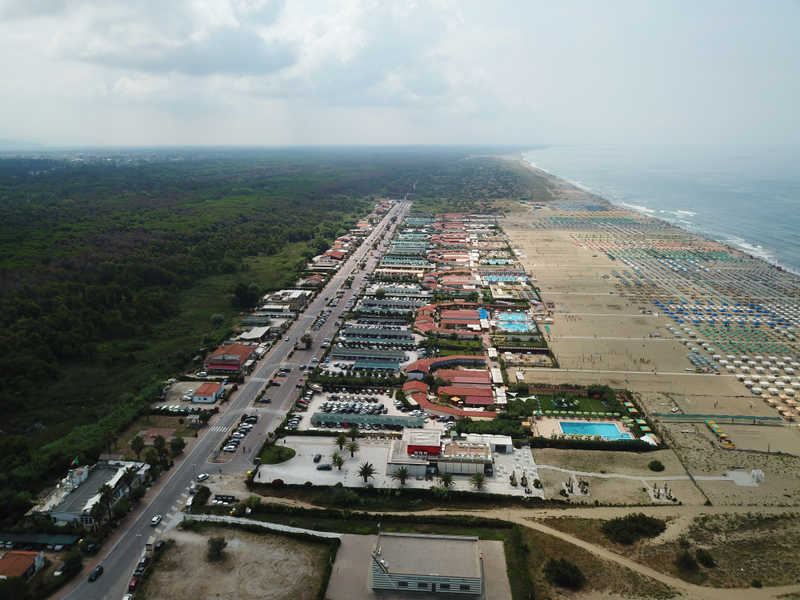The Tamil Nadu apartment ownership Act, 1994
 The Tamil Nadu Apartment Ownership Act, 1994 was passed by the legislative assemble of Tamil Nadu in 1994 to regulate the promotion, construction and transfer of ownership of residential apartments across the state of Tamil Nadu.
The Tamil Nadu Apartment Ownership Act, 1994 was passed by the legislative assemble of Tamil Nadu in 1994 to regulate the promotion, construction and transfer of ownership of residential apartments across the state of Tamil Nadu.
Definitions Used in the Act
Apartment: Apartment as defined by the Tamil Nadu Apartment Ownership Act of 1994 means a property intended for any type of independent use. The property may include one or more floors or enclosed spaces in a building intended for residential purpose. The building with the apartment would be considered as part of the act if it has a direct exit or common areas leading to a public street including highways.
Apartment Number: Apartment number as per the Act corresponds to any number, letter or its combination designating the apartment in the deed of the apartment.
Apartment Owner: Apartment owner as described in the Act means a person with ownership rights for the apartment in question. The apartment owner must have a clear legal title for the apartment.
Association of Apartment Owners: Association of Apartments owners means all of the apartment owners acting as a group in accordance with the bye-laws of the society.
Building: According to Tamil Nadu Apartment Ownership Act of 1994, any unit with five or more apartments or three or more apartments in case of two or multiple towers with a total of five or more apartments constitute a building.
Bye-Laws: Bye-laws mean laws drafted by the society or association of apartment owners to manage the day to day affairs of the housing society.
Common Areas and Facilities: Common areas and facilities include the building land and its premises. Basements, cellars, foundation, columns are all part of the common area. All basements, yards, gardens, parking areas, playgrounds and the premises where caretakers reside in the compound also constitute a part of the common areas and facilities. All elevators, tanks, bore wells, pumps, fans, ducts and all electric and non electric appliances used in provision of facilities to common areas also constitute common facilities.
Competent Authority: A competent authority means any person or authority designated by a government notification to perform functions as a competent authority under the act.
Society: Society means any society registered under the Tamil Nadu Co-operative Societies Act, 1983 (Tamil Nadu Act 30 of 1983); or under the Tamil Nadu Co-operative Societies Registration Act, 1975 (Tamil Nadu Act 27 of 1975).
Key Features of the Act
Apartments to be Heritable and Transferable: As per the Tamil Nadu Apartment Ownership Act, 1994 each apartment owner is entitled to exclusive ownership and possession of his apartment. The act underlines that each apartment sold in accordance with the act shall for all purpose become a heritable and transferable immovable property.
Ownership of Apartments: Each apartment owner is entitled to exclusive ownership and possession of his or her apartment in accordance with the deed of apartment executed and registered under the Tamil Nadu Apartment Ownership Act, 1994.
Common Areas and facilities: Each apartment owner is entitled to an undivided interest in the common areas and facilities in the percentage specified in the Deed of Apartments. Both the common areas and facilities and the limited common areas and facilities must remain undivided and no apartment owner or any other person can indulge in any partition or division of any part. The common areas and facilities must be used in accordance with the purpose for which they are intended.
Prohibited Works: The owners of apartments in any building are not supposed to sell or lease the common areas or facilities. Each apartment owner must provide fire preventive devices either as an individual or together as a registered housing society. Applications for electricity water and drainage connections must be submitted only after the complete ion of all construction activity.
Changes and Encumbrances: Subsequent to the execution and registration of the Deed of Apartment no charge or encumbrance of any nature shall be created or be effective against the property.
Contents of Deed of Apartment: The apartment deed must contain description of the land on which the building is located along with details of the building, apartment number and its location. Description of limited common areas and facilities need to be described in detail. A copy of the deed of apartment must be filed with the concerned competent authority.
Deed of Apartment and copy of Floor plan to be registered: The Deed of Apartment and Floor Plan of the building must be registered under the Registration Act, 1908 (Central Act XVI of 1908) as per the Act of 1994.
What the Act means for people involved?
Tamil Nadu Apartment Ownership Act, 1994 gives a clear roadmap for construction and transfer of ownership of residential apartments across the state of Tamil Nadu. This Act is a step forward in creating awareness in apartment owners about their rights as owners of a residential property. The Act thus has helped in making sure that builders are no longer able to dupe the innocent buyers in the name of hidden charges.







